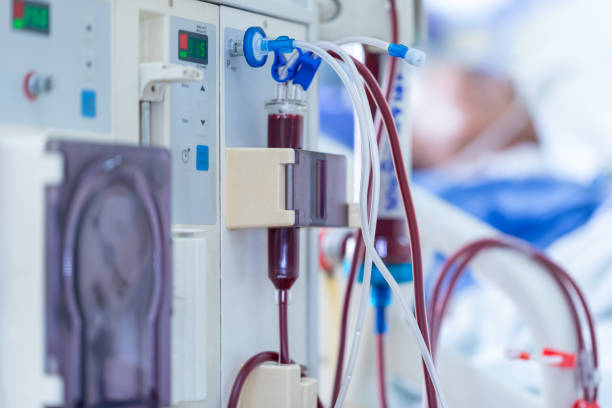Price of being on a dialysis machine in Ghana

Kidney failure is a serious medical condition that occurs when the kidneys are no longer able to filter waste products from the blood. Dialysis is a treatment that helps to remove these waste products from the blood when the kidneys are not working properly.
There are two main types of dialysis: hemodialysis and peritoneal dialysis. Hemodialysis is a process that uses a machine to filter the blood outside of the body. Peritoneal dialysis is a process that uses the lining of the abdomen to filter the blood inside the body.
Patients with private health insurance may be able to get coverage for dialysis treatment, but the level of coverage varies from plan to plan. Patients who do not have health insurance may have to pay the full cost of dialysis treatment out of pocket, which can be a significant financial burden.
The high cost of dialysis in Ghana is a major challenge for patients and their families. Many patients are unable to afford the cost of dialysis treatment, which can lead to kidney failure and death. The government of Ghana has taken some steps to address the high cost of dialysis, such as providing subsidies for patients with low income. However, more needs to be done to make dialysis treatment more affordable for all Ghanaians.
Price of being on a dialysis machine in Ghana
Upon research we discovered that the price for a dialysis session in Ghana can vary widely, typically falling somewhere between 600-1,200 GHS per treatment
But for hemodialysis the cost range from GHS 1,000 to GHS 2,000 per session. And for peritoneal dialysis in Ghana can range from GHS 500 to GHS 1,000 per session.
Factors Affecting the Price of Dialysis in Ghana
High Energy Costs
Dialysis is an energy-intensive procedure, with dialysis machines consuming large amounts of water and electricity during the 2-4 hour treatments. Ghana’s high energy costs contribute significantly to providers’ operational expenses that are passed on to patients.
Staff Wages
Specialized staff like nephrologists, dialysis nurses and technicians require higher salaries to deliver this complex treatment. These labor costs factor into the prices patients pay.
Low Insurance Coverage
Few Ghanaians have health insurance that adequately covers the costs of long-term dialysis. Out-of-pocket payments are required for most patients, eliminating any cost reductions from insurance coverage.
Transportation Expenses
With only a handful of dialysis centers located in major cities, many patients pay high transportation costs traveling to receive dialysis multiple times per week. Added travel expenses increase the overall financial demands.
- Advertisement -
Limited Government Subsidization
Minimal government funding and subsidies to aid dialysis patients means the full costs of expensive equipment, supplies, and operation are borne by the patients. More subsidization could significantly lower prices.
Conclusion
The substantial price of dialysis in Ghana stems from an array of factors including import costs, infrastructure challenges, and limited subsidization. While exact prices fluctuate, most Ghanaians spend between 600-1,200 GHS per session. This presents severe financial hurdles for patients already facing health challenges. Increased awareness of the contributors to high dialysis costs can spur advocacy, aid budgeting for patients, and highlight areas for potential improvement to make dialysis more affordable. With kidney disease prevalence growing in Ghana, addressing the accessibility of life-prolonging dialysis will only become more crucial.


